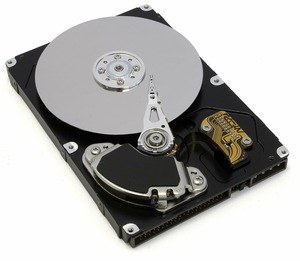Keeping Your Hard Drive Happy: A Guide to Hard Disk Maintenance
الجسم
Hey everyone,
Let's be honest, our hard drives are the powerhouses behind our digital lives. They store our cherished documents, photos, music, and everything in between. But just like any dependable machine, they need some TLC every now and then to keep them functioning optimally.
You might be thinking, "Hard drive maintenance? Sounds complicated!" But fear not, this email is your one-stop shop for keeping your hard disk in tip-top shape. We'll cover everything from basic housekeeping to best practices to prevent future problems.
Why Maintain Your Hard Drive?
Imagine your hard drive as a filing cabinet. Over time, it can become cluttered with unused files, temporary data, and fragments of old programs. This clutter can slow down your system, make it more prone to errors, and even shorten the lifespan of your hard drive.
Regular maintenance helps you declutter that digital filing cabinet, keeping your system running efficiently and your files safe.
The Hard Drive Maintenance Checklist
Alright, let's get down to business! Here's a step-by-step guide to maintaining your hard drive:
- Free Up Disk Space
The first step is to identify and remove any unnecessary files hogging up space. This includes:
- Temporary files: These are leftovers from programs and can be safely deleted using your system's built-in disk cleanup tool.
- Unused programs: We all have programs we downloaded "just in case" but never use. Take some time to uninstall them and free up valuable space.
- Duplicate files: Duplicate photos, documents, and music can eat up space without you even realizing it. There are free and paid tools to help you find and eliminate duplicates.
- Large files: Movies, music libraries, and hefty documents can take up a significant chunk of space. Consider moving them to an external hard drive for long-term storage.
- Defragmentation: A Balancing Act (For HDDs Only)
Here's the deal with traditional hard disk drives (HDDs): as you add, remove, and modify files, they can become fragmented. This means the different parts of a file are scattered across the drive, making it take longer for your computer to access them.
Defragmentation helps reassemble these fragmented files, making your system run faster. However, this process is less important for modern Solid State Drives (SSDs) due to their different technology.
- Regularly Scan for Errors
Just like any other machine, your hard drive can develop errors over time. Luckily, most operating systems come with built-in tools to scan for and fix these errors. Run these scans regularly to catch any potential problems before they become major issues.
- Keep Your System Cool
Heat is the enemy of electronics, and your hard drive is no exception. Dust buildup can also trap heat. Make sure your computer's ventilation system is clean and unobstructed to keep your hard drive operating at optimal temperatures.
- Invest in an External Hard Drive
Think of an external hard drive as your digital safety net. Regularly back up your important files to an external drive. This way, if your primary hard drive crashes, you won't lose all your precious data.
Bonus Tip: Update, Update, Update!
Keeping your operating system and software updated is crucial for hard drive health as well. Updates often include bug fixes and performance improvements that can benefit your hard drive's efficiency.
Wrapping Up
By following these simple steps, you can keep your hard drive healthy and ensure it runs smoothly for years to come. Remember, a little preventative maintenance goes a long way in protecting your valuable data and avoiding costly repairs. If you so end up losing data due to your hard disk's wear and tear, SFWare Data Recovery tool may be able to help you recover lost data before discarding your drive.








تعليقات